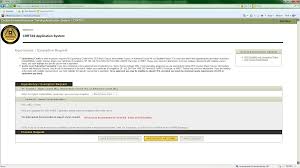Which is a Civilian Education System Course?
You have completed the Basic Course, the Continuing Education for Senior Leaders, and the Constructive Course Credit, and you’re wondering which is a better course to pursue. To help you decide, this article explains the difference between the two types of courses and how to get credit for them. After reading this article, you should feel confident to pursue either one. Listed below are some of the benefits of pursuing either course.
Basic Course
The Basic Civilian Education System Course is a specialized online training course designed to develop leadership and management skills for civilian employees in the U.S. Army. Graduates will be qualified to supervise grades GS 5 through 9. The course is intensive and should be taken in a distraction-free space, as there are 180 days to complete the course. Here are some tips to complete the course successfully. If you have any questions about the course, please contact us.
To complete the Basic Course, applicants must have already completed the Foundation Course or a similar CES course. Individuals must complete the Foundation Course before attempting the resident phase of the target CES course. In addition, the “10-year rule” that prohibited the awarding of course equivalency credit has been eliminated. Individuals can now claim credit for a previous civilian or military leader development course, provided the course was completed within the 10-year limit.
The Intermediate Course teaches civilians to be adaptive, innovative, and self-aware in their roles. Participants and students will learn to manage a wide range of complex systems and are prepared for increasing responsibilities in their jobs. Besides, the course combines dL with three weeks of residential instruction. The Intermediate Course is required for GS 10-12 supervisors and is strongly recommended for non-supervisor employees seeking a supervisory role.
Continuing Education for Senior Leaders
The Continuing Education for Senior Leaders (CES) course is an online program with three different levels. The Basic Course is for employees with GS-1 to GS-9 pay scales. The Intermediate Course is for those with GS-10 pay scales. The Advanced Course is designed for those at the GS-15 pay scale. Both levels have different requirements. After completion of the Basic Course, CES employees may continue with the Advanced Course or the Continuing Education for Senior Leaders.
The course is a hybrid course that is open to both civilians and military personnel. The course teaches leadership skills and self-awareness to participants. It also prepares them for increased responsibilities. The Advanced Course combines a distributed learning phase with a four-week residency period at Fort Belvoir. Participants will learn strategies to develop leadership skills, manage human resources, direct program management, and system integration.
The Civilian Education System (CESL) is a part of the US Army’s continuing education program. It aims to broaden individuals’ capabilities by providing planned opportunities to develop new skills. Through such programs, people can broaden their understanding of different organizational cultures and become more effective leaders. The courses are open to all civilians, but they’re restricted to about 240 students per year.
Constructive Course Credit
What does Constructive Course Credit (CCC) mean? In the civilian education system, constructive credit is a type of college credit awarded to a non-PME student who is able to show the equivalent competencies and learning outcomes of a CES course. Generally, constructive credit is awarded to Civilians without prior PME experience, but can be granted to Soldiers with a particular background. For example, if a Soldier is able to provide documentation that he completed leader training, supervisory experience, and five years of supervising Civilian employees, he may be eligible for a Constructive Course Credit.
A student may request constructive course credit for a course that he or she took years ago. However, if a student has not attended a course in a decade, they may be eligible for course credit. If the student fails to submit the necessary packets, the course may be delayed or not recommended. Further, a student receiving Constructive Course Credit is not required to complete the course in order to earn the credit.



